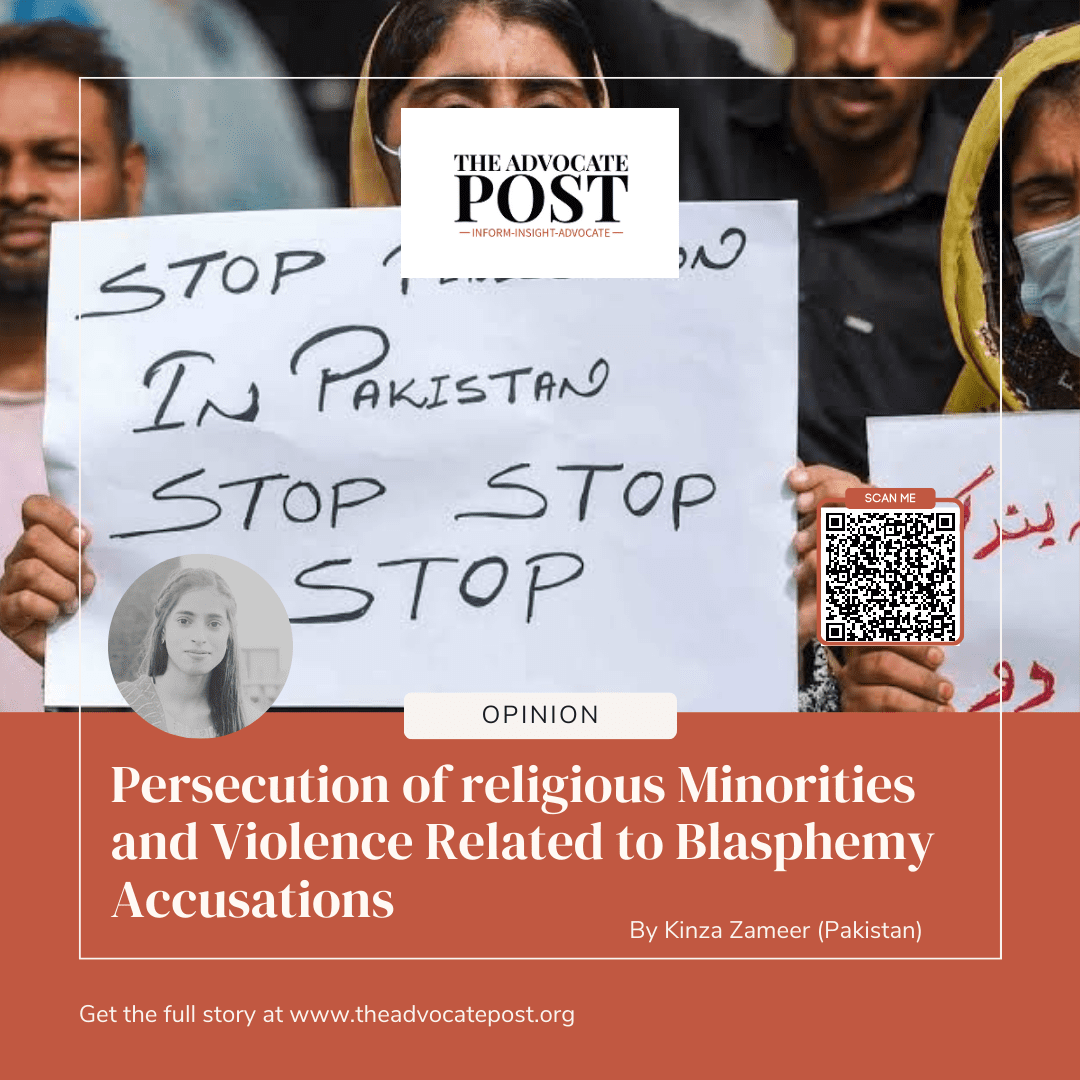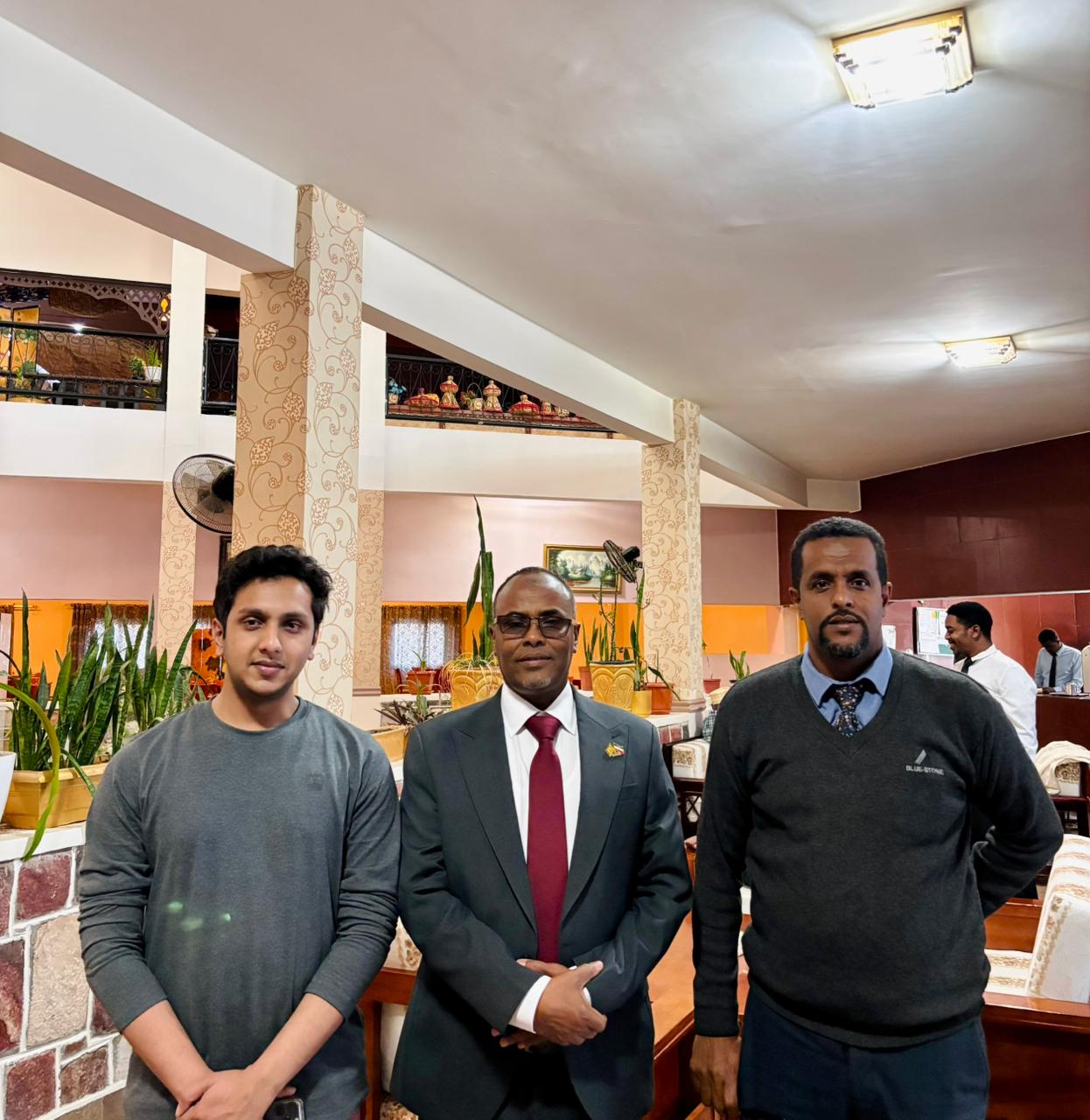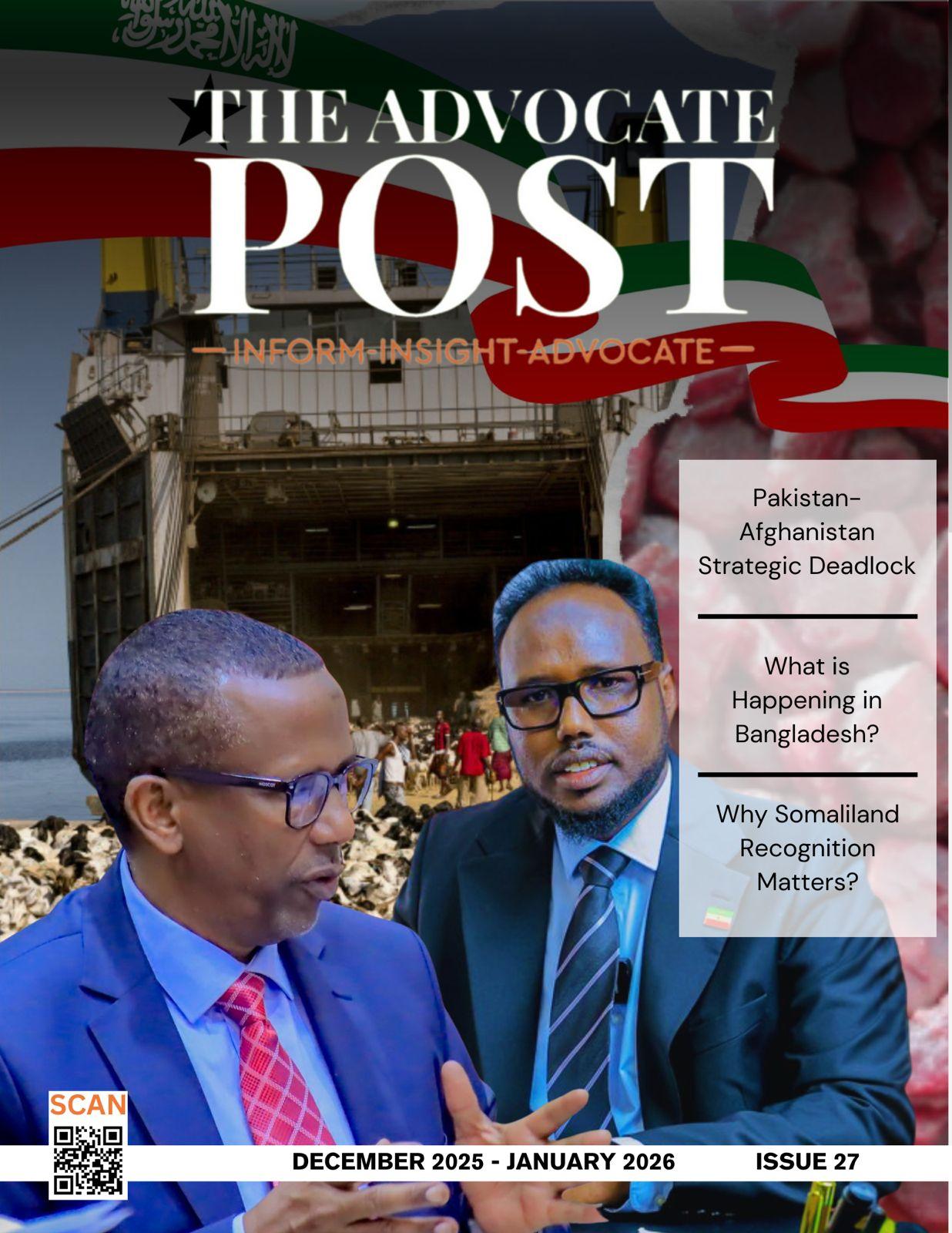By Kinza Zameer (Pakistan)
If this is taking place in any way around the world today, from the persecution of religious minorities to violence justified by blasphemy accusations, it raises profound issues about religious freedom and human rights. Issues of race are deep-seated within such constructs and typically run deeper, with cultural, political, social tensions that differ from one region, ancestry to the other Itoa.
There are many ways in which persecution of religious minorities is expressed – from systemic discrimination and legal restrictions to outright violence and intimidation. Religious minorities, being in the namesake not a part of the majority and therefore not sharing its belief system, still live on the periphery and cope with violence more frequently than other groups. They may face exclusion from public practices of faith, limitations on construction of houses of worship or on participation in social and economic life due to discriminatory laws.
For example, in certain countries, the law is overtly discriminative towards the majority religion, that becomes discriminating and abusing minority rights. These laws can further divide communities and foster an atmosphere where intolerance and at times even hostility towards religious diversity is bred.
Charges of blasphemy often touch a raw nerve among religious zealots, which often ends up in violence and human rights violation. Among the protesters’ demands was to abolish the blasphemy laws, ostensibly designed to protect religious feelings but which have been widely misused to target anyone or any group — including many Muslim sects yesterday and Christians today — that challenges religious norms or beliefs. Mob violence, extrajudicial killings or lengthy legal battles can erupt around accusations of blasphemy, destroying lives and communities in the process.
Many end with public lynchings at the hands of vigilante mobs, and not for want of trying by international organizations appealing to Islamabad to change the laws. These kinds of accusations have the same devastating impact in any other place in the world creating a wave of insecurity and suspicion between religious communities.
Religious persecution, and blasphemy-related violence, are reflections of wider global challenges than straightforward human rights issues. They can fuel social disunity, obstruct economic growth and perpetuate cycles of inter-communal violence. They also contravene some of the most fundamental human rights principles, such as those relating to freedom of religion; not just a non-derogable right enshrined in international law, but also one that underpins all other universal human rights.
This has been addressed internationally to varying degrees of success. In despite of the call for end violence against religious minorities and support the right to religious freedom in various United Nations (UN) Conventions, as well as by a number of non-governmental organizations (NG0s), at national level, political interests clash with long-standing societal practices.
Steps Towards Change
Dealing with the persecution of religious minorities and violence related to blasphemy accusations requires concerted efforts at multiple levels:
Legal Reform: Countries should examine and revise laws criminalizing blasphemy to ensure compatibility with human rights norms, and not utilized for the purposes of discrimination or repression.
Education and Awareness: Fostering dialogue between different faiths, tolerance and comprehension through education to reduce prejudices and respect religious
International Activism: Diplomatic actions and international pressure can encourage governments to live up to their commitments with respect to human rights and religious freedom.
Community Fortification: The involvement of communities is important in curbing extremist hostility and building a harmonious society.
Persecution of religious minorities/violence over blasphemy are pressing human rights concerns that cry out for global action/actions through addressing intolerances at their roots, promoting legal reforms and dialogues.





